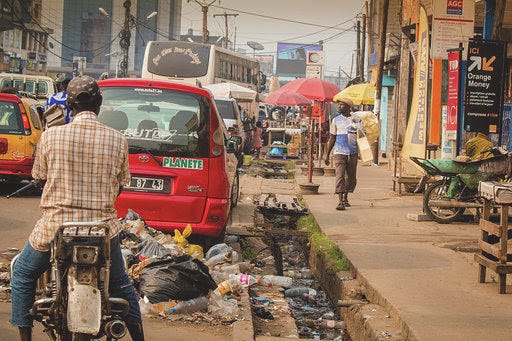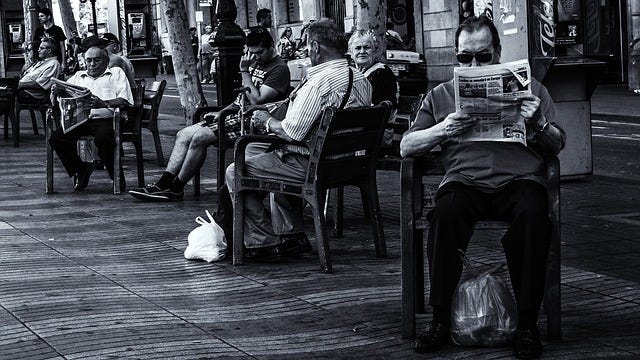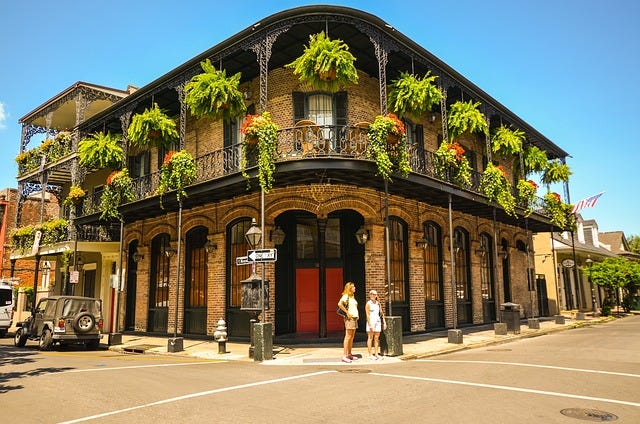Robbery travel tips
Tips for reducing the impact of robbery when travelling - not tips on how to rob people...
From travelling almost full time for more than two years and quite a lot before then, I’ve picked up a good number of travel tips. Here’s a selection concerning robbery:
Take an extra debit/credit card and keep it in a different place
For ages I never bothered to do this, it’s easy to get complacent and think you’re very unlikely to be robbed. Then a couple of years ago I was pickpocketed on La Rambla, Barcelona, and was so glad I’d kept a card back in my luggage at my hotel.
Ok, La Rambla is about the number one place you’re going to get robbed in the world, but it was still a huge surprise as I’m always super-vigilant about my wallet, passport and phone because of what a nightmare losing them can cause. If I hadn’t got a spare debit card back at my hotel on this occasion, things would have been far more difficult.
That Barcelona is such a hotspot for petty crime is mainly because something stolen without violence that’s worth less than €400 is classed as a ‘misdemeanour’ rather than a crime under Spanish law. It is therefore likely that the offender will just receive a small fine (likely to be less than €75) and will be free to rob repeatedly again with just the threat of another small fine or fines in the future. For Spanish pickpockets, therefore, these fines are simply treated as a tedious tax or business expense.
I was very impressed with the pickpocket’s skill. I’m also very grateful to him for only taking my wallet and leaving my passport and mobile phone - people can be kind, after all. Although the phone was so ancient he probably took one look and put it straight back.
It was frustrating that I was robbed in the middle of Europe when I’ve been in many places where I’d expect it to be more likely. In numerous African countries, for example, it is common to see ATMs guarded by a security officer brandishing a gun. You’d think that would suggest robbery would be rife, but on the contrary, almost always people approaching me there would just want a chat, I would feel very safe generally.
That said…
Don’t assume a money belt will protect your money
Walking down the main drag in Douala, Cameroon, one night, a gang pounced on the friend accompanying me. They put a knife to his throat and a machete to his stomach but for some reason ignored me completely. The interesting thing was that they didn’t rifle his pockets but instead immediately looked for a money belt. He’d hidden all his money in his sock, but before they could execute a full search the screaming from people nearby caused them to run off empty-handed.

So along with stashing a spare credit card in your luggage, it’s best to keep cash in several places, such as a wallet, sock, rucksack and more - as well as a money belt.
If you are robbed, don’t resist
When I checked into a hotel in New Orleans once I was surprised at the receptionist’s initial greeting. The hotel was in the French Quarter, a very touristy area, and therefore I assumed there were few crime concerns. However, one of the first things the receptionist said was that if I was challenged by a robber I should immediately give over everything.
This may seem obvious, but in the heat of the moment you may instinctively want to not give over your possessions without a fight. She then said that a week before one of the guests resisted surrendering their wallet right outside the hotel - and was shot dead. This was a long time ago, and from all accounts central New Orleans now doesn’t have exceptional crime problems, but her advice is good, all the same.
Having said all the above, this next tip may seem rather contradictory, but I do believe it:
Don’t be afraid of other countries
The incidents above are I think the only robbery-related ones I have experienced in many years of travelling. If you’re sensible and aware, and don’t walk down the street covered in bling, things should be ok.
A climate of fear is often generated by media reports about the worst crimes at a destination, however unusual they may be, therefore completely distorting the reality on the ground. Most people around the world are generous, friendly, trustworthy and willing to help out if you need it. In fact, it can be very humbling how helpful someone from a very poor country can be to an obviously much richer tourist when they need it, without expecting any recompense.
Of course, in some countries it can be more challenging for a woman to travel, but there are many solo female travellers clearly undaunted by perceived risks and who travel again and again.
I’m often quite bemused by travel advisories governments such as the UK and US put out. Of course these should be taken seriously and heeded to a degree - and visiting a destination the Foreign Office says is too dangerous will invalidate your travel insurance - but sometimes it can be a bit skewed. I remember almost being put off visiting one country because of a travel advisory that talked of various threats such as robbery and occasional violence. At first glance these looked a bit alarming, but looking closer, the incidents were rare, the country and population were huge.
Then I wondered how the Foreign Office would word a travel advisory about Britain if it had to. If it listed the numbers of murders, stabbings, robberies and terrorism offences in recent years in London alone it would probably look terrifying to someone who’d never been there.
I once talked to a white bush pilot who had grown up during what he called the Rhodesian Bush War, but which a black Zimbabwean would term the Zimbabwean War of Liberation. He told me that he would routinely walk to school carrying a gun. When he then told me about fending off snakes and other horrors over the years I said I couldn’t believe the dangers he’d lived under.
“Sorry, you told me you lived on a road in London with five lanes of traffic?,” he replied. “That’s insane.”
Indeed, at the time I lived on a huge road in London, and to him that sounded far more dangerous than what he had experienced. And someone was fatally run over outside my home the same month.
We all have different perceptions of risk.
Always get travel insurance
With all the costs and other distractions of travel, it is easy to overlook buying travel insurance. But travelling without it can be devastating if things go wrong. I must admit that I usually get one of the cheapest policies going, just to cover the most important things, medical cover, essentially. I assume that because I’ve paid so little, small claims will be a torturous affair and not worth pursuing.
However, when I was robbed in Barcelona I had really good cover (with Aviva) because the pandemic was still rife and their policy covered the threat of quarantine, which could cost thousands if I’d needed it. But it proved well worth the considerable extra cost, as my whole claim, backed by a police report, was paid in full. They paid for a missed flight a few weeks later, too.



